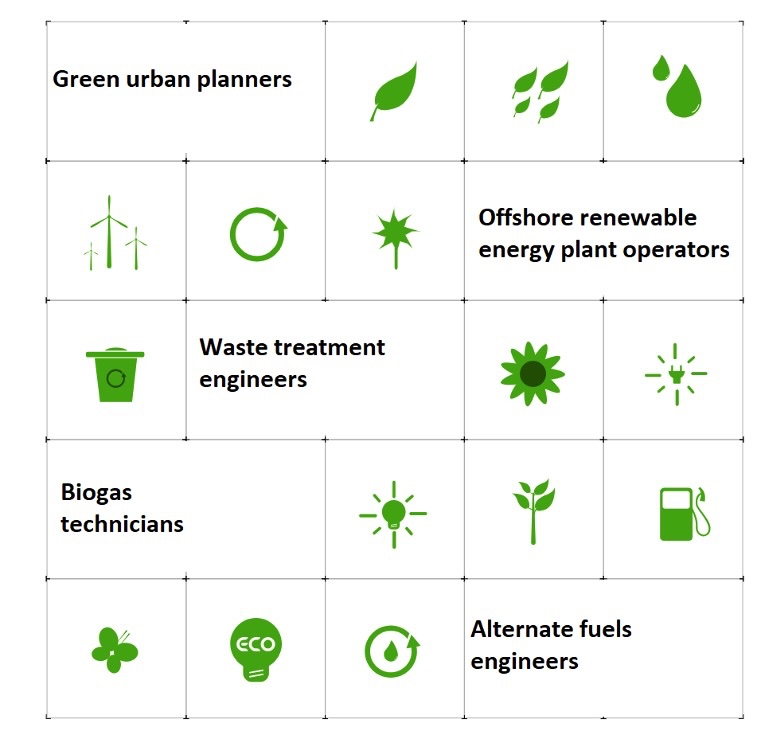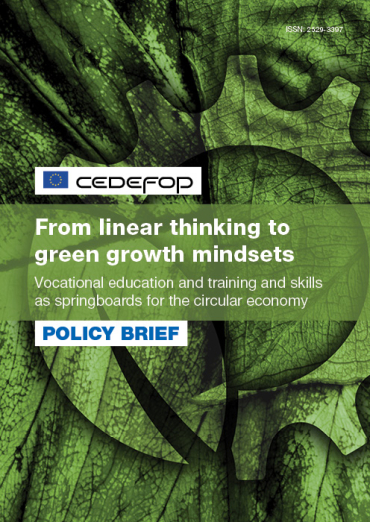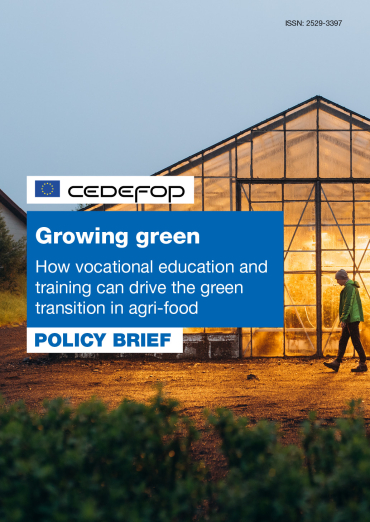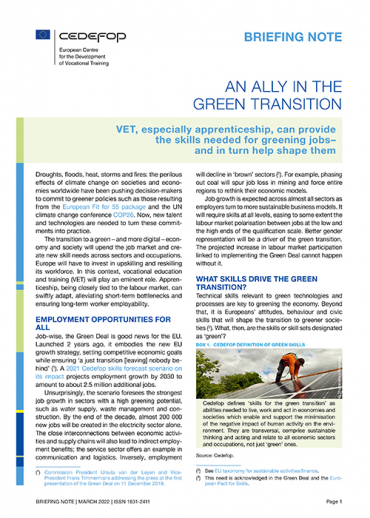Shifting to a circular economy and society can benefit a number of professions at all skill levels but requires extensive upskilling and reskilling – the role of ‘thyroid occupations’.
This is the main conclusion from recent Cedefop research, which indicates that some occupations will play a more central part in the green transition.
According to the Agency’s sectoral skill foresights, these include frontline green jobs (e.g., construction and energy professionals), greentech specialists (e.g. agronomists and hydrogen specialists), green managers (e.g., strategic waste manager and logistics manager), digital specialists (e.g., ICT professionals and e-commerce specialists) and “green hearts and minds” (e.g. HR professionals and sustainability trainers).
Among these, Cedefop’s research also illustrated occupations that may be small in terms of employment shares, but crucial in making the green transition happen – the so called “thyroid occupations”.
These are high- and middle-skilled occupations that invent, design, and conceptualise green transition solutions (such as engineers, process designers, and scientists – research and development) and implement it (such as managers, lawyers, renewable energy technicians, and communication specialists).
To understand the trends in their employment and skill needs, Cedefop analysed five such occupations:

The preliminary analysis suggests that will be higher demand for these occupations, but different and/or upgraded skills will be required.
Besides job-specific technical skills, these also include soft and transversal skills, such as problem solving, communication and attention to detail, adaptability and flexibility. For example, green urban planners should not only understand biodiversity elements, but also master marketing, negotiation, and outreach skills.
The European Green Deal does not only affect occupations and skills needed in specific sectors, but it also necessitates changing business models.
Companies, particularly in sectors affected by the green transition (such as agriculture and waste management), need to adapt their human resource management, to establish workers’ up- and reskilling opportunities etc., in order to absorb the frictions caused by the transition.
Cedefop ran four case studies on selected companies committed to adapt to the circular economy in the following sectors:

The analysis illustrates:
- The importance of investing in innovation.
- The changes in skill profiles demanded, as more people work in offices compared to production plants.
- The need to provide tailored training to employees.
In their effort to respond more efficiently to changing demands, these companies have a valuable ally in the local learning ecosystem, such as universities, that enables workers to acquire new skills and adjust to new production models.
Different occupations are important across the selected companies; however, it is people with thorough and up-to-date knowledge of laws and regulations relating to ‘greennovation’ and changes in business models that seem to play a key role across businesses and sectors.
The full output of Cedefop’s analysis of thyroid occupations and its related company case studies will be published soon and will provide valuable insights that would allow VET systems and workers to plan ahead with specific action.




